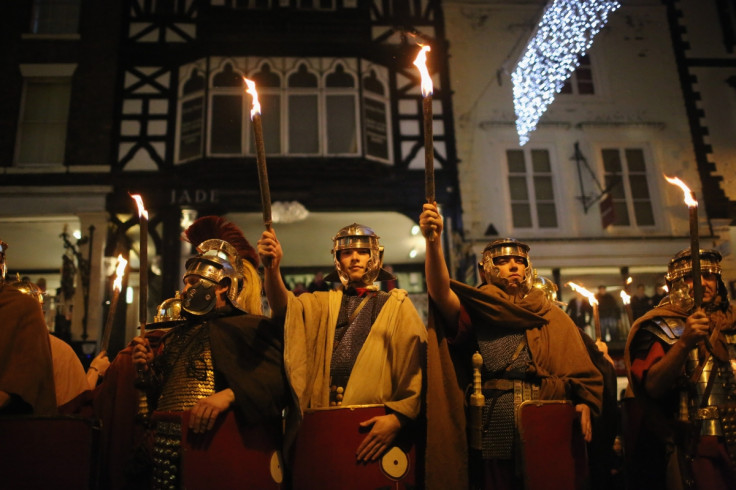Saturnalia Beer Festival: The modern-day Roman drinking festival in the UK's smallest village

Beer enthusiasts will celebrate the Roman drinking festival Saturnalia this weekend at an unusual location − Llanwrtyd Wells, a tiny Welsh village that claims to be the smallest in Britain. This year, the festival will take place across various locations in the hamlet on Saturday 9 January.
As well as a celebration of real ale, there is also an abundance of special foods from Roman recipes by Apicius, a cookery collection thought to be compiled in the late 4th or early 5th century CE, such as lumbuli assi ita fiunt − roast stuffed testicles. You can then walk off the excesses on the Saturnalia Real Ale Ramble along the routes of old Roman roads, with free ale at the check points.
Saturnalia was the major annual festival of the Romans held in December or January, when slaves were temporarily released and reversed roles with their masters to enjoy a day of hedonistic drinking, partying and games. The historic celebration even influenced modern Christmas and New Year traditions.
In ancient Rome, the Saturnalia festival was a celebration of the December solstice − known as the winter solstice in the northern hemisphere. Homes were decorated with wreaths, similar to those hung at Christmas, and the festival was marked with sacrifices, feasts, gift-giving and gambling as Roman social norms were overturned. The reversal of traditional roles was such that slaves wore fine garments and sat at the head of the table.
A major source of information about the holiday came from Macrobius, a Latin writer from the fifth century, who described Saturnalia a festival of light leading to the winter solstice. The poet Catullus called it "the best of days", but eventually Saturnalia degenerated into a week-long crime spree. This gave rise to the modern term Saturnalia – meaning a period of revelry.
The festival was held in honour of agricultural deity Saturn, who embodied prosperity and wealth and was said to have reigned over the world in the Golden Age, when humans enjoyed the bounty of the earth without labour, according to Roman mythology .
Saturnalia remained popular in the third and fourth centuries CE. As the Roman Empire came under Christian rule, some of its customs merged into festive traditions that are still with us today.
© Copyright IBTimes 2024. All rights reserved.






